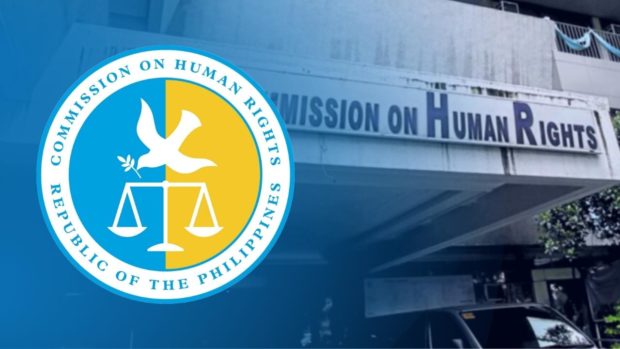Marcos Jr. names former anti-graft prosecutor as CHR commissioner

INQUIRER FILE PHOTO
MANILA, Philippines — President Ferdinand Marcos Jr. has appointed a former investigator and prosecutor from the Office of the Ombudsman as the new commissioner of the Commission on Human Rights (CHR) en banc committee, the agency announced on Tuesday.
According to a statement from CHR, Marcos signed the appointment papers of lawyer Beda Epres last September 15, which CHR Executive Director Jacqueline de Guia received on September 21.
“[CHR] welcomes Atty. Beda Angeles Epres as a new commissioner under the 6th Commission en banc (CEB). Commissioner Epres is the first of the five anticipated appointments of the new members of CHR Commission en banc, the highest decision and policy-making body of the Commission,” CHR said.
Epres will serve a seven-year term, lasting until 2029. As of now, CHR’s Commission en banc has been vacant after the terms of the previous chairperson and commissioners expired last May 5.
De Guia is currently serving as the commission’s caretaker in the absence of a chairperson, to ensure that CHR’s mandate is fulfilled.
Article continues after this advertisementREAD: CHR still ‘headless’ but far from going blind
Article continues after this advertisementAccording to CHR, Epres brings a solid background to the commission, having graduated from the Far Eastern University with a political science degree and from the Arellano University’s School of Law in 1995 — the same year he was admitted to the Bar.
Epres’ background as an Office of the Ombudsman personnel also is a big asset for the Commission, saying that in other countries and states, “human rights ombudsman institutions also function as the country’s national human rights institution.”
“His career stands on a strong foundation and experience in investigation work. Prior to his appointment, he has long been a civil servant as part of the Office of the Ombudsman (OMB) since 1997,” CHR said.
“He started as Graft Investigation and Prosecution Officer I working at the OMB-Military and Other Law Enforcement Offices and steadily rose the ranks. In 2008, he headed the Monitoring Team of the OMB Field Investigation Office (FIO), then became head and team leader of the FIO’s Intelligence Bureau the following year,” he added.
CHR said Epres’s last post at the Office of the Ombudsman was as Director IV of the General Investigation Bureau-A of FIO I.
“With the track record of Commissioner Epres, CHR welcomes his expertise and credibility in conducting independent probe which is crucial to human rights protection,” CHR said.
“Aside from focusing on investigations, which touches on CHR’s protection mandate, Commissioner Epres would also like to advance the rights of older persons and children,” it added.
After months of waiting, Marcos’ appointment as a commissioner would also help maintain the CHR’s Status “A” accreditation as a National Human Rights Institution (NHRI).
“To be recognized globally, NHRIs must adhere to the Paris Principles of independence, pluralism, broad mandate, transparency, accessibility, and operational efficiency,” CHR said.
“CHR is optimistic that Commissioner Epres will continue to contribute [to] making the Commission a steadfast and formidable institution that caters to all people, especially the weak, vulnerable, and marginalized, and in responding to the present and emerging human rights challenges of our time,” it added.